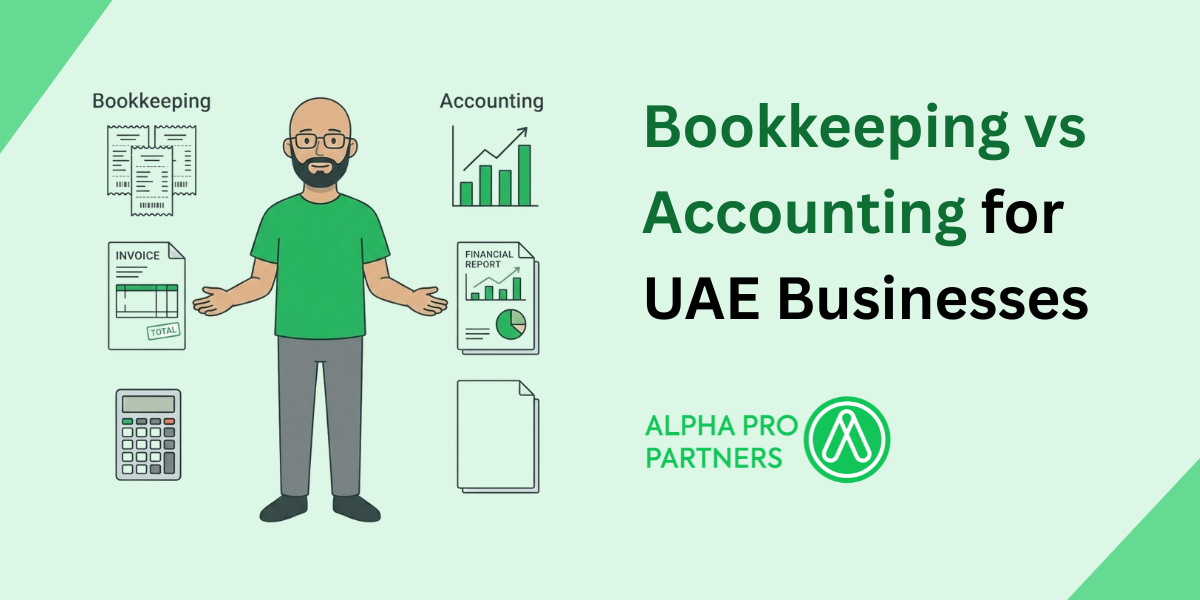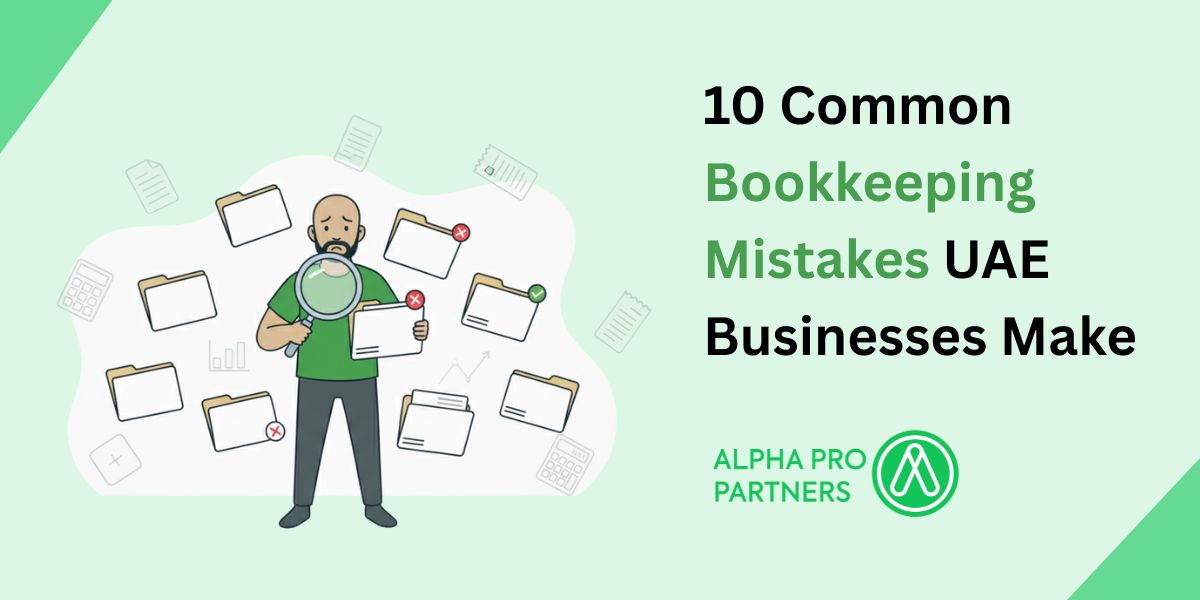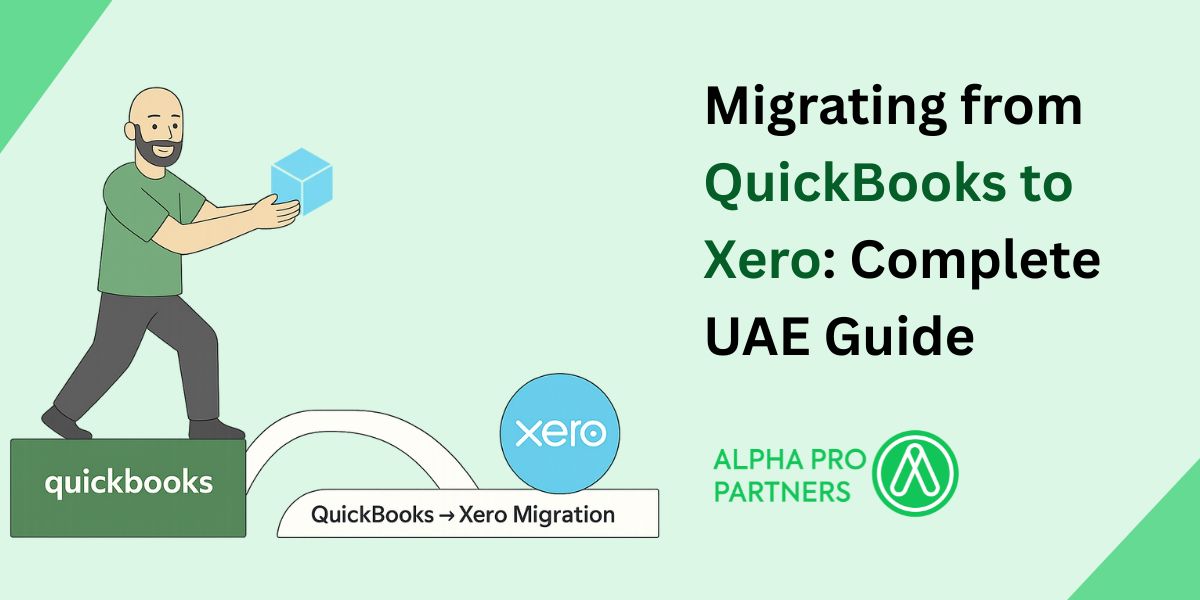Step-by-Step Guide: How to Qualify for the 0% Corporate Tax Rate as a Free Zone Business

If you’re running a Free Zone business in the UAE, the idea of paying 0% Corporate Tax sounds pretty great and yes, it’s possible.
But here’s what most businesses don’t realize:
Just being in a Free Zone doesn’t automatically get you the 0% rate. You need to meet a very specific set of conditions set out in the UAE Corporate Tax Law, the General Guide, and related decisions.
Miss one of them, and your business could end up paying 9% like everyone else.
So, in this guide, we’re laying out the exact steps your Free Zone company needs to take to qualify for and keep that 0% Corporate Tax rate.
Let’s get started.
Step 1: Understand What a Qualifying Free Zone Person Is
To get the 0% tax rate, your business needs to be treated as a Qualifying Free Zone Person (QFZP) by the Federal Tax Authority.
That means meeting all of these 5 conditions:
- You’re a Free Zone Person with a valid Free Zone Licence
- You maintain adequate substance in the UAE
- You earn Qualifying Income as defined by Cabinet Decision No. 100 of 2023
- You haven’t elected to be taxed at the standard 9%
- You comply with transfer pricing and documentation rules
If you miss even one of these? The 0% rate is off the table for the whole Tax Period.
A Qualifying Free Zone Person isn’t just a label; it’s a status your company must prove and maintain. Businesses that qualify benefit from substantial tax savings, but that benefit comes with responsibilities. You’ll need to clearly show the FTA that you meet each of the five conditions throughout the Tax Period.
Failing to meet even one condition, whether through oversight, lack of documentation, or misunderstanding, can immediately disqualify your business from the 0% rate. And once you lose QFZP status, you don’t just pay 9% tax on new income ; it applies to all your taxable income for that Tax Period.
Step 2: Maintain Adequate Substance in the UAE
This basically means your business needs to be doing real work in the UAE, not just holding a license.
You need to show:
- You have people, premises, and operations in the UAE
- Your core income-generating activities happen inside the country
- You have enough full-time employees and other resources based locally
What counts as “adequate” depends on the nature and size of your business.
If your business is primarily involved in services like logistics, consulting, or trading, the substance requirement will focus on whether your staff, systems, and operational decision-making take place within the Free Zone. This isn't just a formality. The FTA wants to ensure that Free Zones aren’t being used to shelter profits for activities that are actually performed elsewhere.
You may be asked to provide evidence like:
- Lease agreements
- Employment contracts
- Utility bills
- Payroll reports
- Local supplier invoices
Keeping proper records is key, not just for compliance, but to protect your 0% rate in case of an audit.
Step 3: Earn Only Qualifying Income
The 0% tax rate only applies to Qualifying Income and that’s not everything your business earns.
Here’s what’s included:
- Income from transactions with other Free Zone Persons (excluding income from excluded activities)
- Income from transactions with Non-Free Zone Persons only if it relates to Qualifying Activities (and meets the de minimis rule)
- Any other income approved by the Minister as Qualifying Income
And here’s what doesn’t qualify:
- Income from Excluded Activities like banking, insurance, or property income from non-Free Zone property
- Income from Non-Qualifying Activities that exceed the allowed threshold
Let’s break this down.
Qualifying Activities can include services like holding shares in subsidiaries, distributing goods in or from a Free Zone, and regulated financial services provided to other Free Zone Persons. But if you stray into Excluded Activities or start earning a substantial portion of your income from the mainland without proper structure, you risk being disqualified.
That’s why it’s critical to review your revenue streams on a monthly basis. Are you generating qualifying or non-qualifying income? Is your activity structure consistent with your Free Zone licence and operations? These are the questions that will protect your eligibility.
Not sure if your income qualifies? Contact Alpha Pro Partners today for a free consultation. We’ll help you review your structure and stay within the 0% zone.
Step 4: Pass the De Minimis Rule (If Needed)
If you’re earning both Qualifying and Non-Qualifying Income, this rule matters a lot.
To keep the 0% rate, your Non-Qualifying Income must not exceed the lower of:
- AED 5 million, or
- 5% of your total revenue in that Tax Period
If you go over this limit? You lose QFZP status and get taxed on your full income at 9%.
This rule is especially relevant for Free Zone businesses that trade or provide services to mainland clients. If you’re handling just a few minor contracts outside the Free Zone, you may still qualify. But if those contracts push your revenue beyond 5% or AED 5 million, you’ve crossed the line.
It’s not enough to track your annual income after the fact. You need to actively monitor it as the year progresses so you can take corrective action if needed like restructuring contracts or shifting eligible income sources.
Step 5: Keep Proper Records and Audit Where Required
You’ll need to:
- File a separate Corporate Tax return
- Prepare and maintain proper records
- Submit audited financial statements if required by Cabinet Decision No. 114 of 2023
These documents help the FTA confirm that you qualify for the 0% rate and are fully compliant.
Businesses that fail to maintain proper records may find themselves struggling to prove QFZP status during reviews or audits. That includes not just financial statements, but full documentation on:
- Transactions with Related Parties
- Justification of substance in the UAE
- Breakdown of Qualifying vs Non-Qualifying Income
- Transfer pricing documentation (if applicable)
Audited financials aren’t optional for many Free Zone companies. If your business crosses certain thresholds, like revenue over AED 50 million, you must get your books professionally audited, even if you’re operating at 0%.
Step 6: Don’t Elect to Be Taxed at 9%
Sounds obvious, but yes, Free Zone companies can choose to be taxed at the standard rate.
Why would anyone do that?
- If they want to avoid the complexity of transfer pricing rules
- If they know they can’t meet the Qualifying Income or de minimis test
If you want the 0% rate, make sure you don’t submit an election to be taxed.
Once that election is made, it’s binding for a fixed period and you won’t be able to switch back easily. Some businesses make this election if they’re expanding into the mainland or expect to exceed the de minimis threshold consistently.
But for most Free Zone firms that qualify, the tax benefit of staying at 0% far outweighs the administrative effort of staying compliant. Just make sure your team (or advisor) doesn’t accidentally submit the election during the registration process.
Step 7: Watch Out for Related Party Transactions
Transactions with Related Parties and Connected Persons need to follow arm’s length pricing and you’ll need to document everything.
This applies even if your entire group operates in the Free Zone.
If your transfer pricing is off or not documented correctly, it could lead to:
- A loss of QFZP status
- Back taxes and penalties
Related Parties include businesses you control or that control you. Connected Persons can even include individuals like shareholders or family members who benefit from business decisions.
If you’re paying above-market rent to a related entity, or receiving below-cost services from a Connected Person, that could raise red flags. It’s critical to:
- Benchmark all intercompany pricing
- Document agreements in writing
- Maintain updated transfer pricing files if required
Final Word
Qualifying for the 0% Corporate Tax rate is a huge advantage but it’s not automatic, and it’s not permanent.
You need to meet all five conditions every single year and stay on top of every threshold, record, and reporting duty.
The moment you slip up, you’re taxed like everyone else.
But with the right setup and support, your Free Zone business can stay fully compliant and keep enjoying the benefits of the 0% rate.
If you’re unsure about your current status, or want help planning ahead, it’s best to speak to someone who knows the law inside out. The FTA isn’t giving second chances when it comes to conditions or deadlines.
Don’t leave your tax rate to chance.
FAQs
1. What is a Qualifying Free Zone Person?
It’s a Free Zone business that meets all five FTA conditions, including substance, qualifying income, and compliance with documentation rules.
2. Does having a Free Zone license automatically give me the 0% rate?
No. You must meet all required conditions and thresholds, and maintain proper documentation.
3. What is Qualifying Income under the UAE Corporate Tax Law?
It includes income from Free Zone-to-Free Zone transactions and certain types of Non-Free Zone transactions linked to qualifying activities.
4. What are Excluded Activities?
Activities like banking, insurance, and certain real estate transactions. Income from these disqualifies you from the 0% rate.
5. What is the de minimis rule?
If you earn both qualifying and non-qualifying income, the non-qualifying income must stay under AED 5 million or 5% of total revenue whichever is lower.
6. Do I need to file a Corporate Tax return as a QFZP?
Yes. All Free Zone Persons must file a Corporate Tax return, even if they qualify for the 0% rate.
7. Can I voluntarily choose to be taxed at 9%?
Yes. You can elect to be taxed at 9%, but then the 0% rate no longer applies.
8. Do I need audited financial statements to get the 0% rate?
Yes, if you fall under the thresholds set by Cabinet Decision No. 114 of 2023. Audited statements help confirm eligibility.
9. What happens if I lose my QFZP status mid-year?
You’re disqualified for the entire Tax Period and subject to 9% tax on your full taxable income.
10. Can I still do business with mainland companies and keep the 0% rate?
Only if the income qualifies as a “Qualifying Activity” and passes the de minimis test. Otherwise, it could cost you your QFZP status.
Need help?
We’ve helped many UAE Free Zone businesses figure out the ins and outs of qualifying for the 0% Corporate Tax rate. If you’re unsure whether you qualify or want help getting there, contact us now for a free consultaiton with our team of experts.
Let’s make sure your business stays compliant and keeps its tax advantage.

.webp)







%20Widgets%2C%20Shortcuts%20%26%20Customisation.jpg)








.webp)
.webp)


.png)
.png)
.png)
.png)
.png)

.png)
.png)


.png)
.png)





.jpg)


.jpg)





.png)
.png)






.png)


